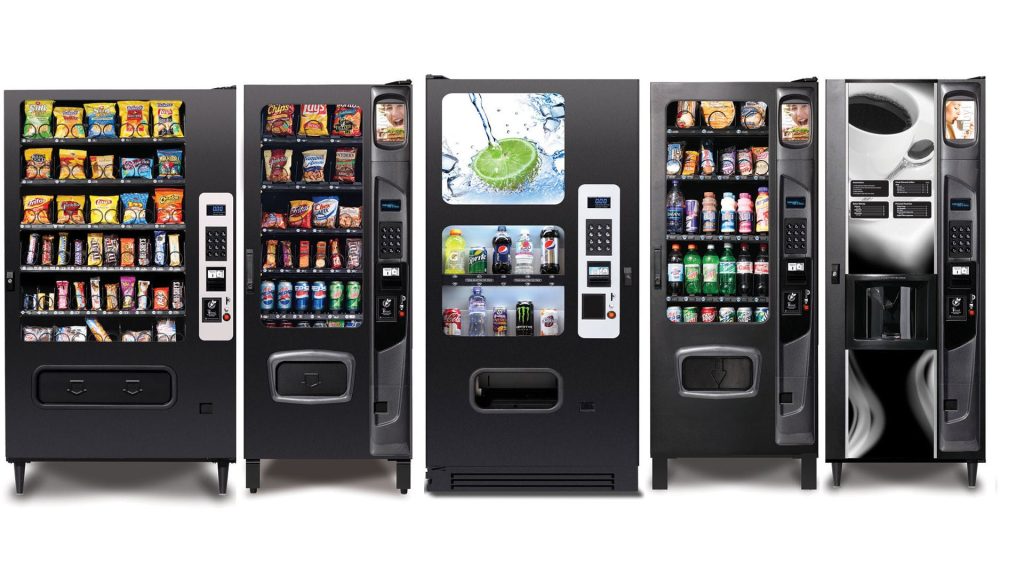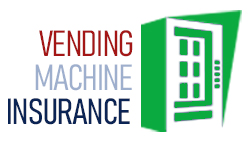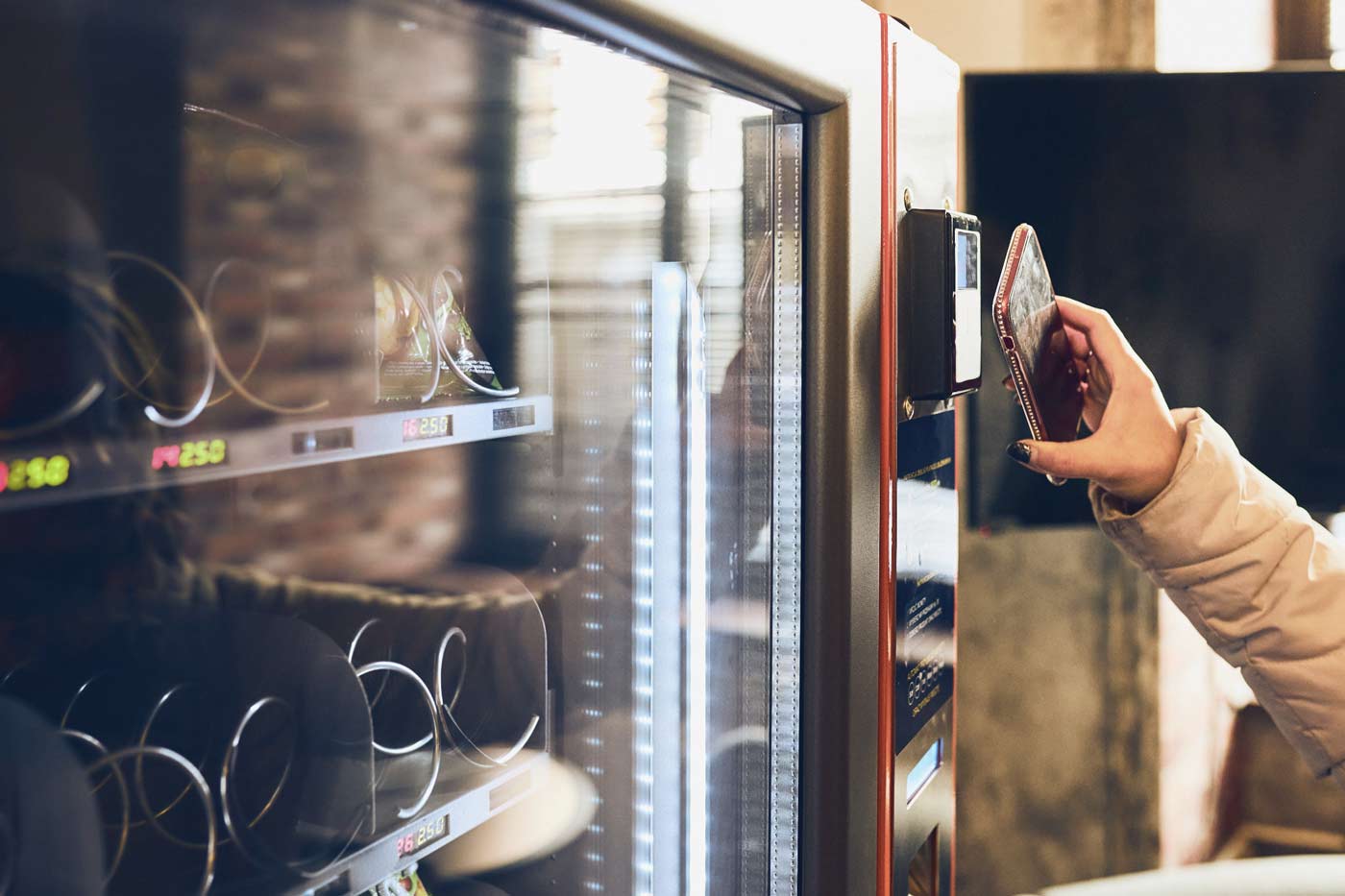A Beginners Guide To Vending Business Insurance Coverage
A typical vending machine can earn you around $5,000-$6,000 per year. That means if you own, say, around 10 vending machines, you could earn $50,000-$60,000 per year. If you own a hundred of them, you could be pulling in more than half a million dollars per year.
There are some costs associated with running a vending machine business, one of which is insurance. In this post, we are going to over everything you need to know about insurance for your vending machine business.
Do You Need Vending Machine Insurance?
Let’s get this out of the way with one simple word: yes. You absolutely need vending machine insurance. Below, we explain why.

Vending Machine Insurance Requirements
From a legal standpoint, you probably do not technically require vending machine insurance in order to operate.
The exception is if you have employees. If you do, you will need to pay for workers’ compensation insurance.
That said, the owners of venues where you want to place your vending machines may require you to have insurance in order to do business with you.
So, to give yourself access to the widest possible range of business opportunities, insurance is important.
But the biggest reason to get vending machine insurance is simply to protect your business.
Why Vending Business Insurance is Necessary
Operating a vending machine business entails an unusual amount of risk. You can monitor your machines from afar electronically, but that by itself does not stop anyone from damaging them or stealing your products while they are unattended. And they will be physically unattended the overwhelming majority of the time.
To help you understand the necessity of vending machine insurance, let’s go over a few scenarios that could crop up during the course of running your business.
- While transporting a vending machine to a new site or setting it up, it could be damaged, or do damage to someone else’s property.
- You might accidentally stock products that are contaminated, resulting in food poisoning.
- One of your vending machines could be vandalized or destroyed.
- While your employee is working on reloading the products in your vending machine, they could be injured.
Those are just a few examples. Now that you are thinking about it, you can probably visualize some of the other things that could go wrong, and how much they could end up costing you.
That is why you need insurance. The more you scale your business, the more opportunities there are for damage, vandalism, theft, and other expensive problems. You will end up filing a claim eventually.
Types of Vending Machine Insurance


When you own and operate vending machines, it is smart to invest in multiple types of insurance policies to give your business the highest levels of protection. Following are some types of vending machine insurance you should strongly consider getting.
- General liability: If there is just one type of insurance that every business owner should have, it is general liability insurance. This goes for vending machine businesses too. General liability insurance is a type of coverage that can pay out if a third party claims that they were injured or their property was damaged as a result of your actions or equipment. Say, for instance, that an employee of the third party venue where your machine is located tries to move the machine and throws out their back. General liability insurance could pay out to cover their medical expenses.
- Workers’ compensation: You will almost certainly have employees to maintain your vending machines, especially as your business scales up. By law, you are required to pay for workers’ compensation insurance. If they get sick or injured on the job, workers’ comp can cover their medical costs and lost wages.
- Commercial property insurance: What if your own property is damaged during the course of business? You can cover it with this type of insurance.
- Commercial auto insurance: You can cover the vehicles you are using to transport your vending machines, goods, and workers using commercial auto insurance.
- Inland marine insurance: This specialized type of insurance can cover your vending machines and other equipment while they are in transit. Commercial auto insurance only protects the vehicle, and commercial property insurance often only covers equipment when it is stationary, not on the move. You definitely are going to want this type of coverage.
- Commercial crime insurance: This type of insurance can pay out if someone vandalizes your vending machine, destroys it, or robs it.
- Product liability insurance: If a customer claims that one of the products you sold harmed them in some way, product liability insurance can come to your rescue. For instance, maybe a customer believes they got food poisoning from one of your products.
- Business owners policy: You can roll general liability insurance and commercial property insurance into a single type of policy called a business owners policy, or “BOP.”
- Business interruption insurance: If you cannot operate your business because of damage to your vending machine(s), then you can lean on business interruption insurance.
- Equipment breakdown insurance: If your vending machine breaks down, you can use this type of coverage to pay for repairs or a replacement. Sometimes it may also double as business interruption insurance.
- Spoilage insurance: If any of the perishable items you are selling in your vending machines go bad, you can use spoilage insurance to help pay for your losses.
- Cyber liability insurance: If you take payments via credit or debit card at your machines, you may want to invest in specialized insurance to cover you in case of cyber crime. Through a method called “skimming,” criminals are able to pick up the information from cards that have been run through your machine. It just requires a special type of device.
This is not an exhaustive list of all possible types of vending machine insurance, but it does cover the vast majority of coverages that may be useful to you as a vending machine operator.
Vending Business Insurance Costs
How much will vending machine insurance cost you every month? There are a variety of factors involved, not the least of which is what types of coverages you end up deciding to purchase. Here are some general cost estimates for some of the different types of vending machine insurance policies:
- BOP: $260 a month
- Product liability: $99 a month
- Equipment breakdown insurance: $67 a month
- Cyber liability: $25-$100 a month
- Commercial auto: $75-$200 a month
- Inland marine: $61 a month
- Workers comp: $70 a month
- Commercial crime: $54-$208 a month
Bear in mind that these are just averages we saw listed from a single source. In reality, prices may range substantially above and below what you see here.
So, what are some of the factors that can impact how much you have to pay for vending machine insurance? Let’s go over them now.
- Types of coverages: The list we gave above demonstrates how the more types of coverages you buy, the higher your overall costs for insurance will be. When just starting out with a few vending machines, you could keep your costs low by just getting a few basic types of insurance, like general liability, workers’ comp, and equipment breakdown insurance. As your business scales up and you have more cash flow, you could tack on more types of coverages.
- Deductibles: The deductible for an insurance policy is the amount that you have to pay from your own funds before the policy will begin paying out. If you have a high deductible, you will have to pay more before coverage starts helping you. But your monthly insurance costs will be lower.
- Coverage amounts: Every insurance policy for a vending machine business covers up to a certain maximum. Raising that maximum can help if things go awry and you have to make a big claim. But it also means you will pay higher monthly costs.
- Size of vending machine operation: One major factor that will influence the costs to insure a vending machine business is the size of your operation. A person who owns 10 vending machines is not going to have to pay as much as someone who owns 100 vending machines, or 1,000 vending machines. A large network of vending machines entails higher risk.
- Location(s): Geography is a big deal when it comes to determining risk for a vending machine business, thus it is a key factor during the underwriting process. If you only have vending machines in safe parts of town, your costs will be lower than if you have them in crime-ridden neighborhoods. Or if all of your vending machines are located inside office buildings, they will probably cost less to insure than if they were all outdoors.
- Products you sell: Different types of products carry different risks with respect to spoilage, theft, and so on. This will factor into your insurance costs as well.
- Payroll: If you are starting your business 100% by yourself with no employees, then you will not need workers’ comp. But once you get even one employee, then you will need to start paying for workers’ comp. The size of your payroll, both in terms of number of workers, and amount of their pay, will impact your cost for workers’ compensation. The larger the payroll, the more expensive your workers’ comp will be.
- Claims history: If you have a long history of prior claims, whether with the company you are applying for insurance with or a different carrier, that does not paint a picture of safety and stability. Your rates will be higher as a result. But if you have a longstanding record of few or no claims, then your rates will probably be lower.
- Experience: How much experience you have working as a vending machine operator is another factor that can affect your insurance rates. If you have a lot of experience under your belt already, then you may be quoted better rates, because the carrier is aware you know how to mitigate your risks. But if you are brand new to the business, you may be quoted higher rates, since you still have a lot to learn.
- Discounts: There may be discounts available for certain things. For example, if you install remote monitoring equipment for your vending machines, some carriers may cut you a break with your insurance prices. You might also get a discount if you bundle policies with one carrier, or you go years without any claims with that carrier. To make sure you do not miss out on any possible discounts, be proactive and ask about them when you apply for insurance.
- Underwriting: The different underwriting guidelines between carriers can result in higher or lower rate quotes depending on where you go.
Should you buy the least expensive insurance out there? Maybe, maybe not. When you compare quotes, it does make sense to try and pick one of the least expensive carriers. But you need to research the company to make sure you are going with a carrier that will deliver value for your money.
Look for a carrier that has a strong reputation for a quick and reliable claims department and excellent communication, tools and customer service. A company like that will be easy to deal with when you do end up needing them.
Where to Get Vending Machine Insurance Coverage
You have had a chance to learn about the different types of vending machine insurance, as well as factors that can impact your costs.
You are probably eager to apply for the policies you need to start running and growing your business. To save you time as you shop for your vending business insurance coverage needs, we have put together a quick list of our top recommended vending machine insurance companies. Click any of the links below to request your custom quotes.


